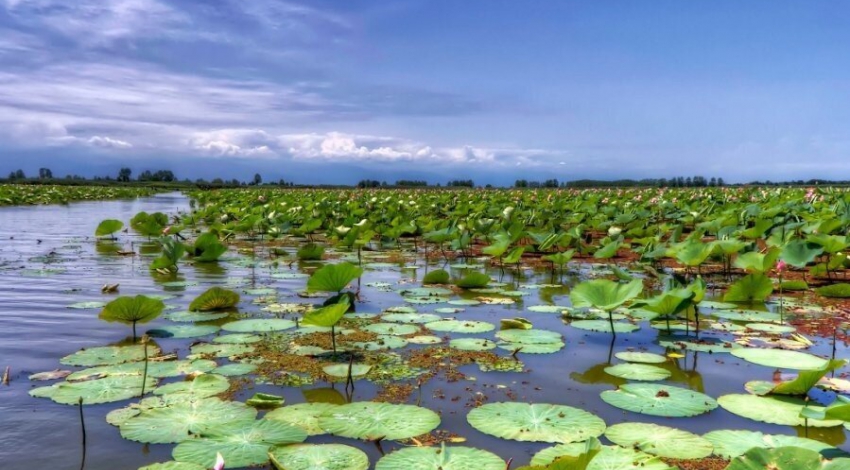Thursday 12 January 2023 - 18:44
Story Code : 403281
Anzali Wetland revival needs more public participation
Dredging the wetland�s waterways will greatly help the revival process, IRNA quoted Asadollah Abbasi as saying.
�Anzali Wetland revival is a collective issue, and all the institutions must carry out operational measures in coordination with the revival working group,� he added.
The revival process started in the 1960s. However, it has not been fruitful yet, Abbasi stressed.
Covering more than 19,000 hectares, Anzali Wetland is located near the northern port city of Bandar Anzali, neighboring the Caspian Sea. The wetland was designated as a Ramsar site on June 23, 1975. It is fed by several rivers and separated from the Caspian Sea by a dune system.
The lagoon is home to submerged and floating vegetation and also extensive reed beds. It bears international importance in terms of breeding, staging, and wintering waterbirds.
While dams have contributed to human development by providing reliable sources of drinking water and irrigation, hydropower, recreation, navigation, and income, they also can cause considerable damage to the rivers, deplete fisheries, and alter recreational opportunities.
Anzali Wetland has suffered huge sediment and sludge accumulation due to the entrance of domestic and agricultural sewage from five surrounding cities, which resulted in a decrease in the wetland�s depth and capacity along with threatening biodiversity.
One of the most important concerns regarding Anzali Wetland is a constant drop in depth which was 11 meters before while shrinking to 1 meter or even 50 centimeters in recent years.
According to a report published by the University of Tehran in the Iranian calendar year 1395 (March 2016-March 2017), the amount of sediment accumulated in Anzali Wetland is usually 1 to 7 millimeters per year.
If the average sedimentation rate is three millimeters, one meter should be reduced from the depth of the wetland every 30 years, while the wetland�s depth has decreased by 3 meters in the past 30 years.
Undeniably, human involvement has led to such a situation in Anzali Wetland.
By TEHRAN TIMES�
# Tags











